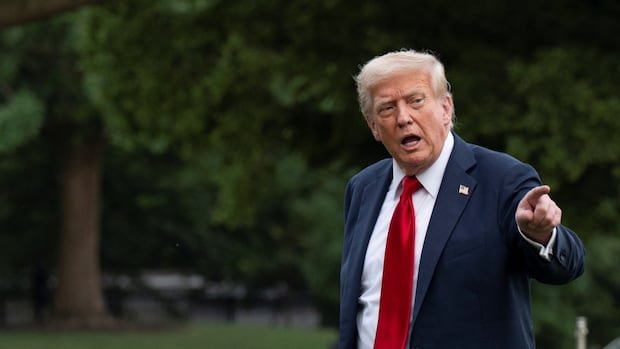U.S. President Donald Trump is engaging in a confrontation with American cities, hinting at the possibility of utilizing presidential authority to initiate a federal control over New York City and Washington, D.C. His actions stem from efforts to address immigration issues and what he perceives as high urban crime rates, escalating his ongoing disputes with several major U.S. cities in recent times.
During a recent cabinet meeting, Trump mentioned the idea of potentially implementing a federal takeover of Washington, D.C., emphasizing the desire for a well-managed capital. Similarly, his focus extended to New York City, specifically targeting mayoral candidate Zohran Mamdani, whom he labeled as a potential disaster if elected mayor of the nation’s largest metropolis.
The extent of Trump’s authority in this matter is subject to interpretation and location-specific considerations, as per insights from experts consulted by CBC News. While there are limitations to federal intervention in state and city governance, Trump could employ various tactics to create challenges for city administrations and their residents.
The Supreme Court has underscored the prohibition against federal interference in state government operations, citing the 10th Amendment of the U.S. Constitution, which delegates powers to states not assigned to the federal government. Experts note that actions such as replacing a mayor with federal appointees are beyond Trump’s jurisdiction.
Trump’s remarks on wielding significant power to manage cities hint at potential avenues for federal interference in city affairs, including deploying federal agencies like Immigration and Customs Enforcement (ICE) or leveraging fiscal consequences with congressional support, as witnessed in previous instances concerning Chicago.
The financial reliance of cities like New York on federal funding adds another layer of complexity to the scenario, akin to federal leverage over institutions like Columbia University. Trump’s contemplation of federal control over Washington, D.C., faces different dynamics due to the district’s unique governance structure and historical federal involvement.
The ongoing Trump-city feud is perceived by experts as a strategic move to position himself against Democratic strongholds, capitalizing on political tensions and public sentiments. The relationship between Trump and Mamdani is seen as mutually beneficial, with each leveraging the other’s image for political gain, underscoring a continual political rivalry between the two.

